
If you or your client serves a local community, you need local links. Sourcing high-DR links from global sites is not enough for Local SEO. They may give you some power, but they won’t give you local relevance.
Do you want to exceed expectations with industry-specific links that rarely cost money? Do you want to build relationships with the local business community while creating a sterling backlink profile?
Below, I’ll show you how…
In this guide, you’re going to learn what local link building is. You’ll also learn why local links can be more effective than prestigious ones that aren’t tied to your region. After that, you’re going to learn seven places to source high-quality local links.
What Is Local Link Building?
Local link building is the process of building links from local (geographically nearby) sources.
Next to major steps like signing up for Google My Business, building local backlinks is one of the essential elements of local SEO.
If you want to understand why local backlinks are important, consider the role of any type of link building in your SEO efforts. Google uses your link profile to make judgments about your website and its relevance to key topics.
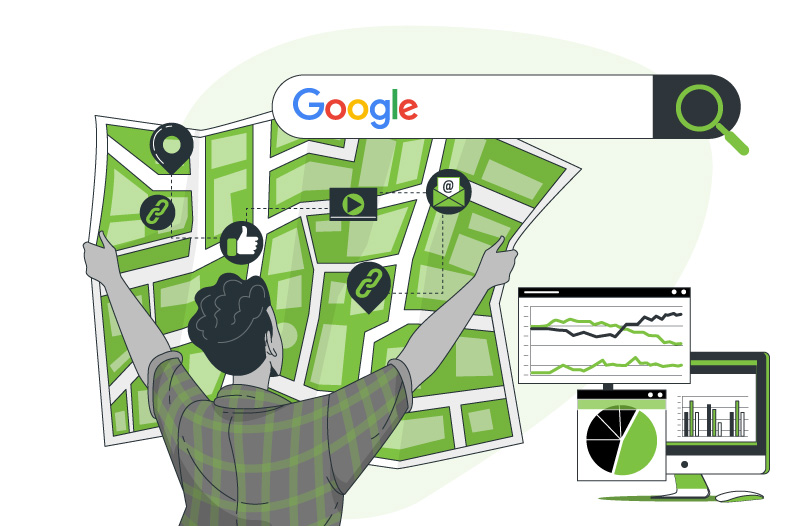
If you want to appear in Google search results, you need to have some relevance signals that crawlers can assess. With local SEO, you have two different types of relevance to worry about: industry relevance and local relevance.
Unlike industry links alone, local link building helps you to prove to Google that your website is relevant to a location.
If you’re trying to build backlinks for a real estate website in Chicago, you need links from real estate sites and Chicago sites. The best backlinks for your SEO are from sites that are relevant to both.
Google will consider all of this when judging your site. Solid local links can help you earn your way into local results. These links are also a major contributing factor in whether or not you appear in the local pack.
The advantages go further than that.
Visitors who follow a local link to your website are more likely to purchase local services. It’s exactly the type of traffic you want to drive, even if you aren’t worried about what Google wants.
Now, you know why it’s worth it to engage in local link building, and what impact it has on your local SEO. Let’s get started on how to do it.
I recommend seven different steps that all build on one another until you’re in a powerful position.
Those steps are:
- Start with directories
- Build local guest posts
- Offer mentions in a piece of content to get links back
- Do outreach to insert links elsewhere
- Drive unlinked brand mentions
- Create expert roundups
- Ask for vendor partner links
Let’s start with some links that are, fortunately, free and easy to set up.
1. Start With Directories
A directory is a website that collects and displays local business listings. Any businesses that have been added will have their name, address, and phone number (often abbreviated as your NAP information) listed for the public.
You’ve probably visited many of these types of sites before. Sites/apps like Yelp, YellowPages, BBB (Better Business Bureau), and Angie’s List are all directories. Even Google My Business is a sort of directory.
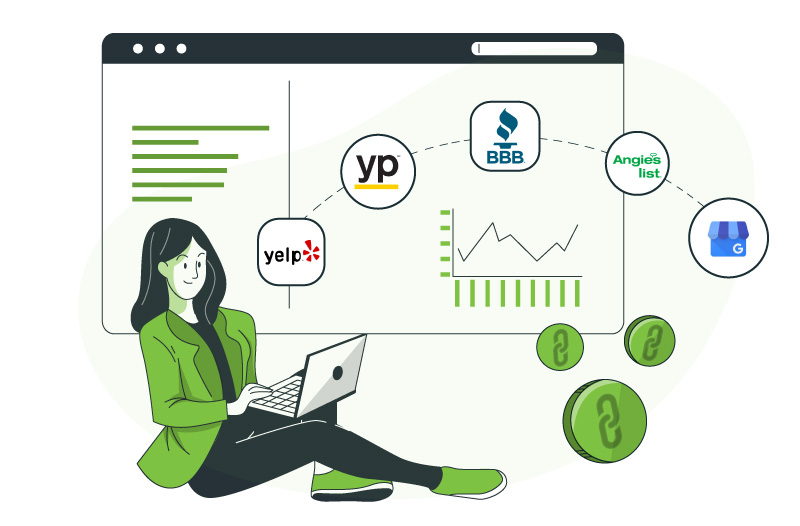
You should create business profiles on the national sites, such as those I just named. Still, the real purpose of this link-building step is to find industry and/or region-specific local directories. Those sites will help you establish your relevance to a specific city or local community.
Let’s imagine that your client is a plumber in New York. Can we find a directory that will help you hit both marks?
I found one on the 1st page of Google results for “New York plumber directory”: A directory called the Master Plumber’s Council of New York. This would be a perfect link for your hypothetical client.
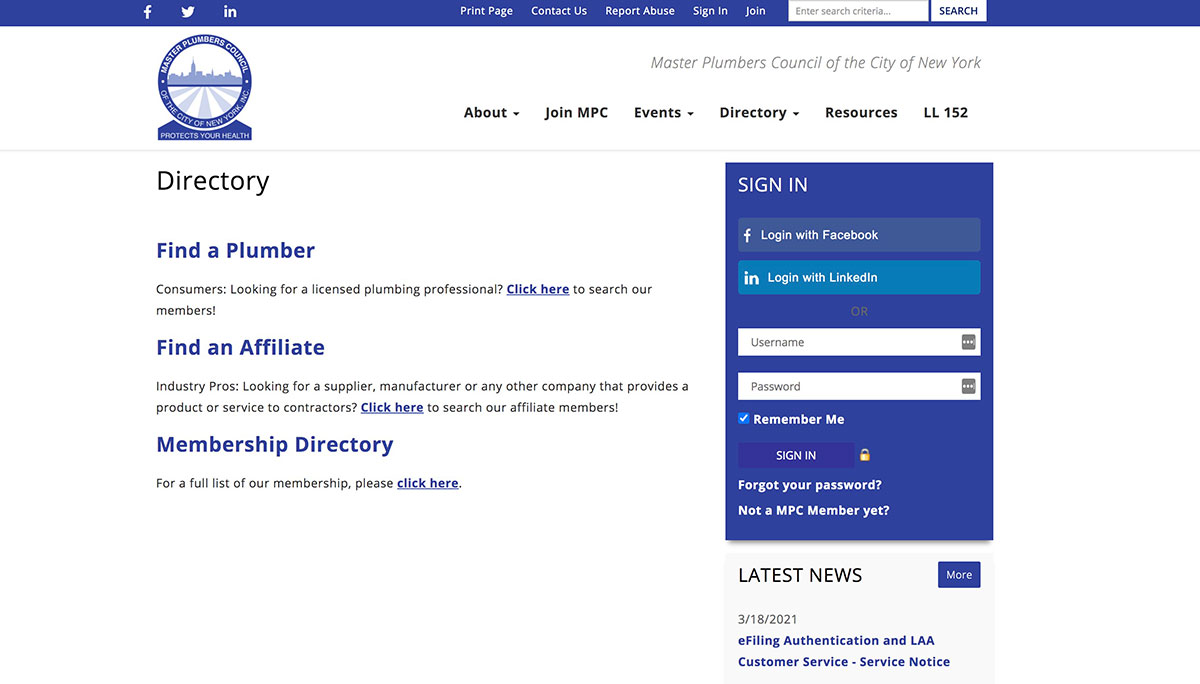
Now, you won’t always be able to find directories that match both region-and-industry. This one was easy because New York is huge and plumbers are numerous. Don’t be discouraged if you can’t find a directory that fits both.
Nearly every major city has some kind of local business directories, though. You may even be able to find some business directories that are narrowly focused on specific neighborhoods.
While you’re at it, there are thousands of industry specific national directories in the US. There are also business directories that serve specific small-town regions. Pick up perfect region or service matches when you can, and build on the national directories when that’s not an option.
Why Do Directories Matter?
Directory sites are the perfect start point for your local link-building campaign because they’re widely available and offer a fast and simple way for businesses to establish a profile with industry and region-specific links.
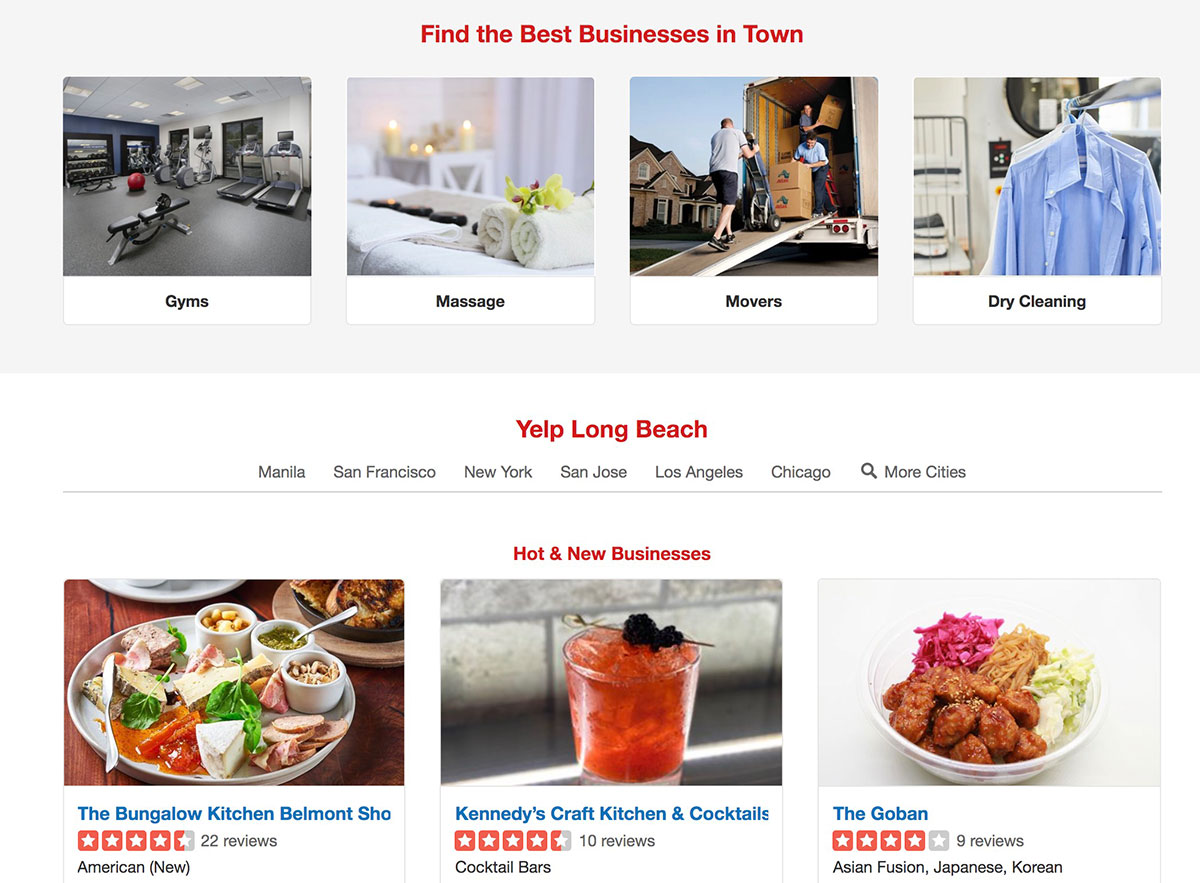
Providing these listings is the business model of directory websites, so they don’t put many obstacles in your way. You won’t be charged anything to register in most cases, and your listing will appear quickly.
When you’re done building local directory links, I recommend that you move on to guest posting.
2. Build Local Guest Posts
You know what a guest post is. Guest posts are articles that are written by you and published by another site. The general idea of a guest post is that big sites need content, and you need their audience.
Building guest posts locally works exactly the same as building them on big national sites. The only difference is that you’re trying to find local bloggers that are based around the correct region and industry.

There probably isn’t going to be a long list of sites that hit both marks, so you should be as persuasive as possible when you reach out to local businesses with links.
I like to lead with data in my email pitches to small business owners or local bloggers. Use examples of similar titles that perform well and use past guest posts (and their rank) as proof that you can perform.
You can also try dazzling them with Ahrefs reports that back up the value of the potential post. Show them similar topics that have achieved high local search rankings. You can also show them the rankings of blogs you’ve already created to prove your value as a writer.
Data-backed persuasion will get you closer to getting a response. I break down the whole pitching process in this video.
Why Build Local Guest Posts?
Guest posts just work when they’re well-targeted. It’s why they’ve been a part of link building for years now. It’s not hard to find local bloggers or a local business with a blog with a simple Google search.
If you’re targeting local blogs that are relevant to your client’s industry, you’ll get a link to your website that reinforces your place in local searches.
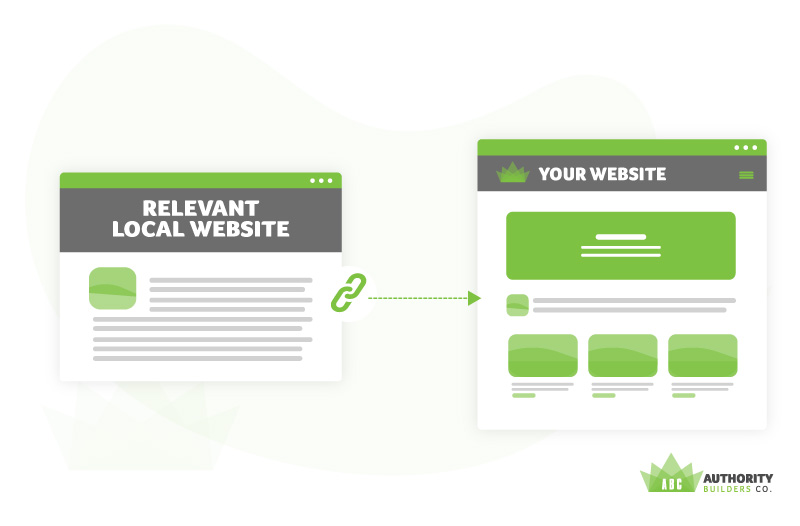
Like directories, guest posts can have a low cost of entry. In most cases, you’re only going to need to pay for the cost of producing the content you’re giving away.
Some sites may charge for guest posts, but that’s less common in local niches. Mostly, you’ll find business sites that are willing to trade fair links for fair links.
When you’ve exhausted your list of local sites that need content, you can start developing content for your website and using it to attract links.
3. Offer Mentions in a Piece of Content to Get Links Back
You can offer to spotlight local businesses in your content in exchange for a link back to your site.
I like to dangle FOMO (Fear of Missing Out) in front of my targets. It works like this.

I develop a list of local link targets and organize them by the business. Imagine that several of them are coffee shops. I could make a blog titled “top 20 coffee shops in New York (Or Manhattan or Brooklyn—the more local, the better).
I would then email all the coffee shops on my list and write something like:
“I’ve never been to your coffee shop, but I’ve heard too many good things to ignore. If you can give me some details about your shop and link to the list when it’s done, I’ll make sure to add you.”
This message gives them a strong incentive to respond. They may worry that if they don’t get added to the list, another competitor will get the attention that should have been theirs. I detail the whole FOMO strategy in this video.
Why Offer Mentions for Links?
This is an excellent link-building strategy because it’s a great way to build links from local business sites that aren’t interested in guest posts (or don’t even have blogs).Like some of the other strategies, it doesn’t have costs beyond the production of good content.
This is a link-building strategy you can build on over time as you’re publishing each new piece of content. You can also adapt it to other kinds of content, such as a press release or case studies.
While you’re between pieces, you can source links from content that’s already written. One of the best ways to do that is to approach other businesses about link insertions.
4. Do Outreach to Insert Links Elsewhere
A link insertion is an arrangement where links are placed in existing pieces of content in exchange for some benefit. If you’re new to this tactic, check out our guide on link insertions and how to implement them into your SEO strategy.
We’re going to flip the last strategy on its head by looking at existing content for top businesses and finding existing lists where your client’s website belongs.
Start by searching “Top 10 (industry) in (region),” and make a list of the articles that come up on the first page. You can reach out to the site that published the list and find out what it would take to make your client one of the businesses featured.
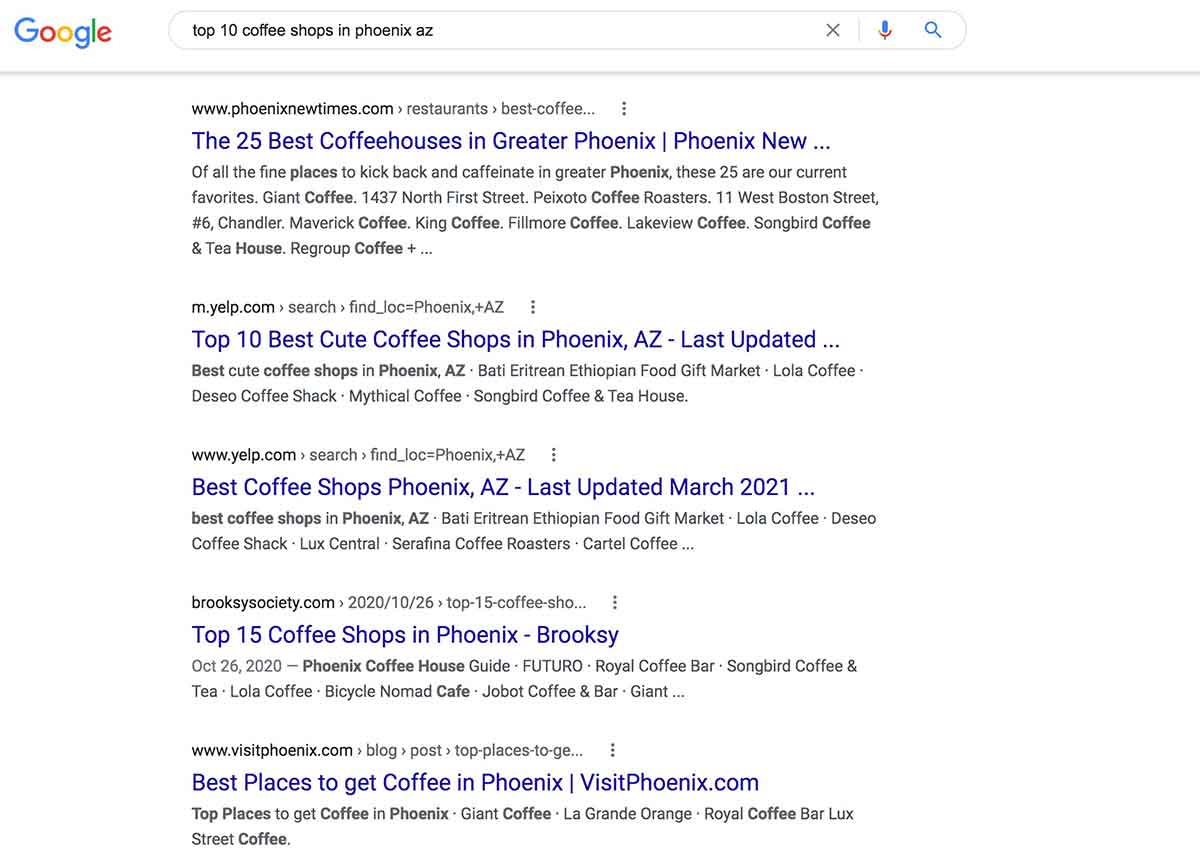
In arrangements like these, you may be asked to pay. You can try promising to link to the list (hey, that’s good social proof for your client, anyway), but if it’s a high-traffic list, the publisher may want compensation.
One way to encourage the outcome you want is to develop the new segment yourself. Write the passage with the link in the existing voice and style of the article. The easier it is for them to copy-paste the new segment out of your email, the more likely you’ll be approved.
Why Seek Out Link Insertions?
Link insertions are an important part of your link-building campaign because they allow you to get spots in already aged and performing content. This tactic is popular among SEO experts because there isn’t much work involved, compared to guest posts.
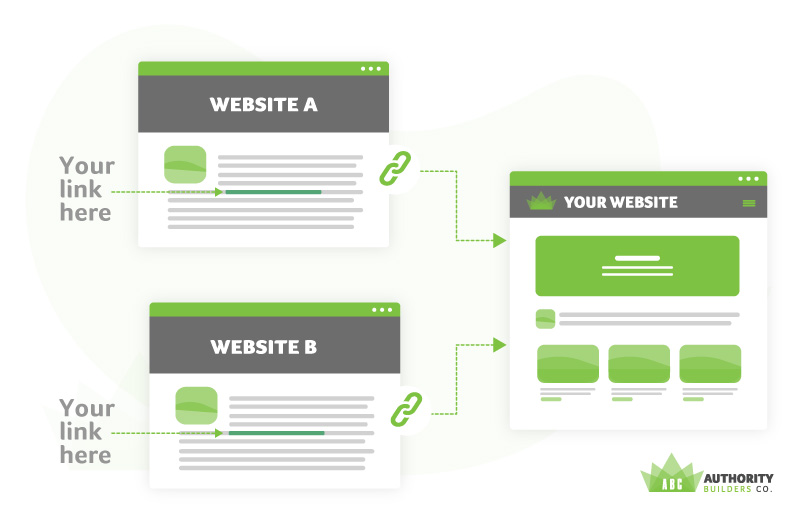
Sometimes, you won’t even have to fight to be mentioned. You may be able to find places that you’re mentioned but not yet linked. These mentions can make for a great opportunity for new links…
5. Drive Unlinked Brand Mentions
An unlinked brand mention is any online mention of your brand that does not link back to your site.
For example, imagine that someone has written an article about local businesses or landmarks in a city. They may mention a lot of various locations without linking to any of them. If one of those happens to be your client, you have an opportunity in front of you.
Any website that has already mentioned your client is likely to be more receptive to a request than the average outreach target. All you have to do is reach out to them and ask them to turn their mention into a link.
These brand mentions are easy to find using a tool like Ahrefs. You can also use tools like Mention or Brand24 to put this process on autopilot.
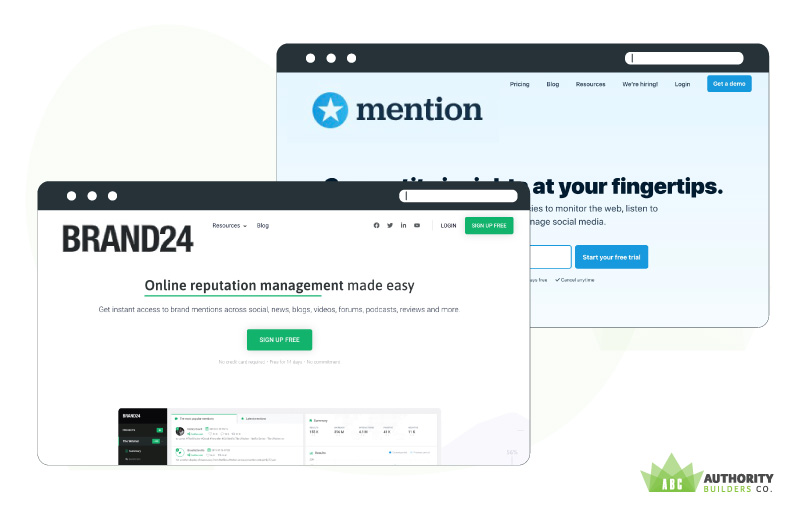
Why Target Unlinked Brand Mentions?
You should target unlinked brand mentions because they’re easy. They’re easy to find, and they’re easy to request. All you’re asking someone to do is add a link to a word in content they’ve already created.
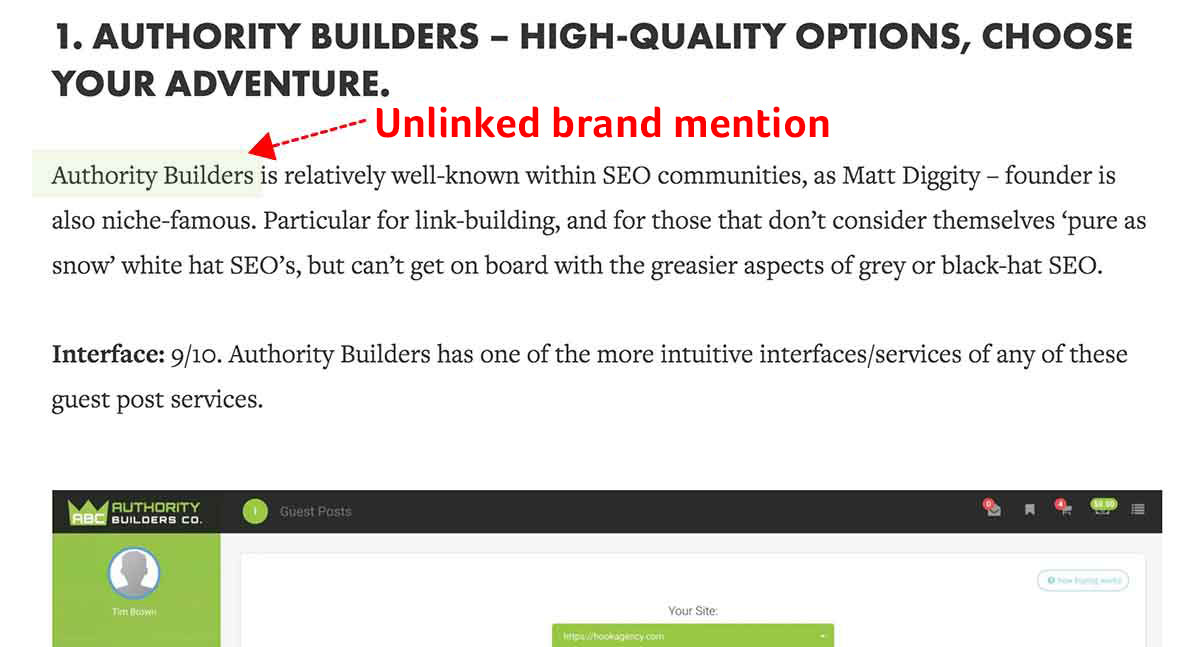
Reaching out to someone (especially another local business) who has already covered your client in a positive light can be a great opening to future collaborations. The referral traffic you may generate is just icing on the cake.
If you’re interested in using your link-building strategy to create long-term relationships in your industry, you should consider an expert roundup…
6. Create Expert Roundups
An expert roundup is an article that’s developed by taking quotes from influential people in a target industry or region. Start with a hot question or topic, and reach out to 20-30 thought leaders to get their take on it.
Let’s go back to the coffee shop client for an example. Start with a local issue that matters to everyone. Let’s say the city council is considering zoning a new commercial area near where your client is located.
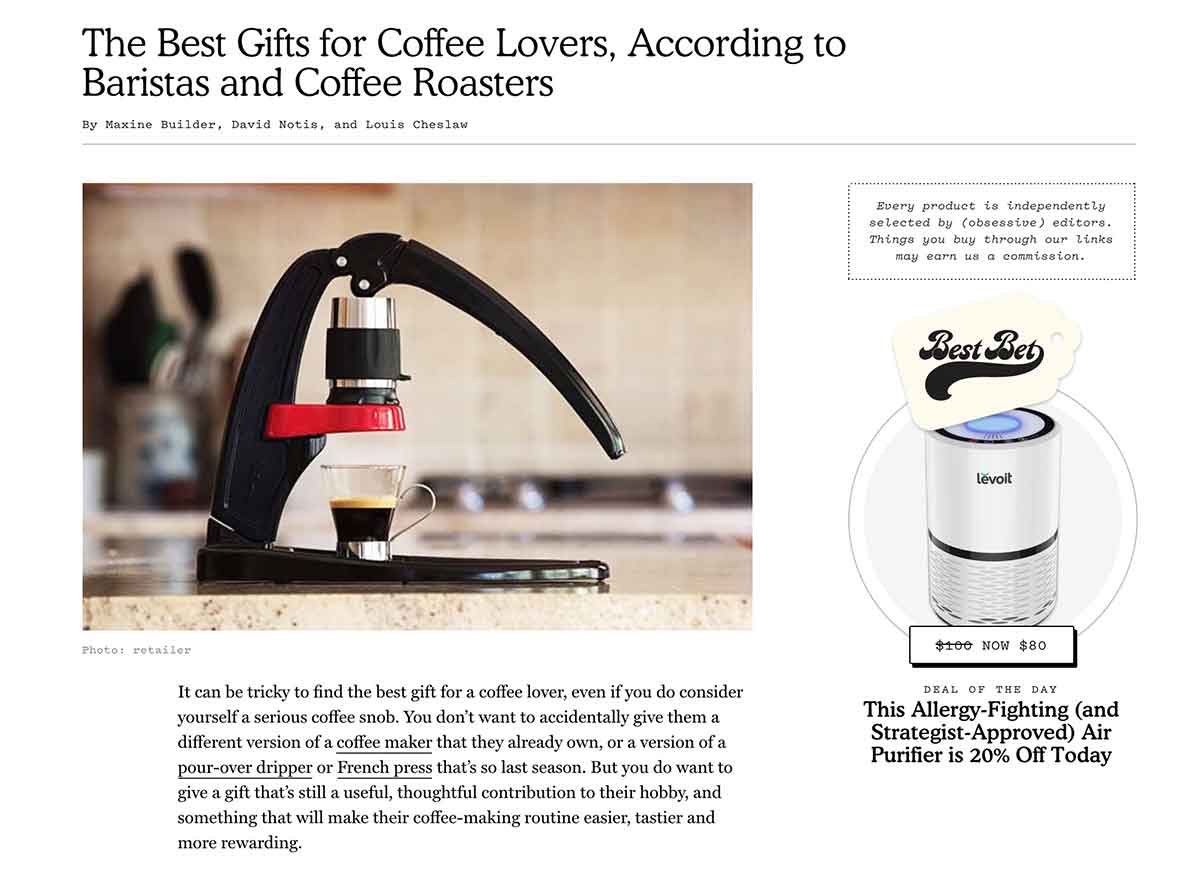
This is an issue that a lot of nearby business owners are going to want to sound off about. Reach out to each of them and ask if they’re interested in an article that will showcase local opinions.
Ask them to link to the article when it’s done. They’re likely to be receptive to it because it will feature their voices. It’s marketing for them and a link for you.
Why Develop Roundup Articles?
Roundup articles are perfect for local link-building strategies because they can be worth dozens of links for very little effort. Search engines respond well to them, and the posts are great shareable content that you can post on social media.
It requires very little effort on your end. Most of the content is generated by the quotes, so you just need to handle the outreach, organization, and introduction.

You can collect local backlinks from each business featured in the article. Just let them know when it’s published so that they can show off their knowledge on their site or social media profiles.
When you build one of these articles, it can attract even more attention to social media. If any fans mention the article elsewhere, you have yet another backlink.You can even get attention from local news sites that need quotes.
Links from these sites can be great for your SEO, and the link opportunities can really snowball from there.Featured influencers aren’t the only people who might benefit from a link. You can also consider vendor partners…
7. Ask For Vendor Partner Links
Vendor partner links are backlinks that you drive from your client’s relationship with vendors. Most local businesses have a lot of vendors who provide them with supplies that are necessary to the operation of the business.
For example, if your client runs a restaurant, they may source bread from the local bakery or ice cream from the homemade mom-and-pop shop.
Any other business might need disposable cups and plates, wholesale office supplies, or other materials. Most businesses rely on many vendors, and this is where you’ll find some key link opportunities.
You can reach out to any and all of these vendors and ask for a link on their site. They may jump at the chance to include your link in a message like “preferred (product) of (such and such) restaurant.
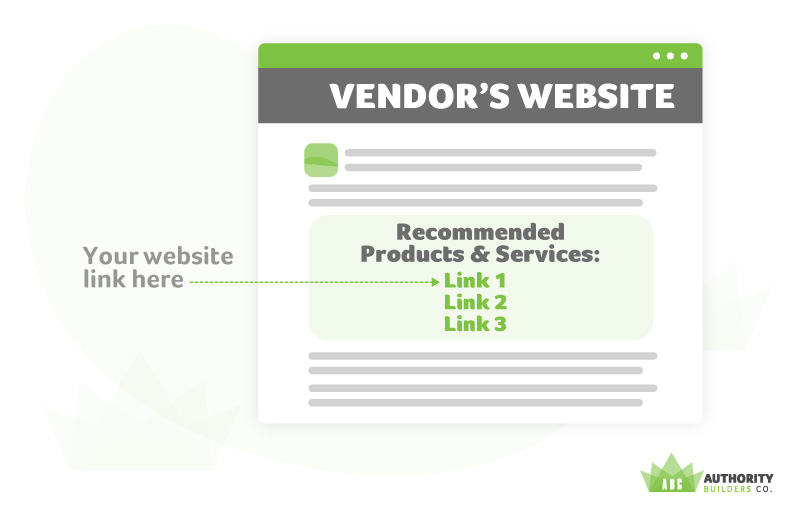
If they ask for a link in return, you can easily create a page on your website to highlight the vendors who support your client.
It makes them look good, and it gives you SEO-strengthening backlinks (and maybe even some referral traffic). It’s a true win-win proposition.
Why Go For Vendor Partner Links?
This is a great link-building tactic because it’s reinforced by the prior relationship you have with the vendors. They’re primed to want to help you. Your client is one of their business clients, so they’re likely to consider your request as a part of their customer service.
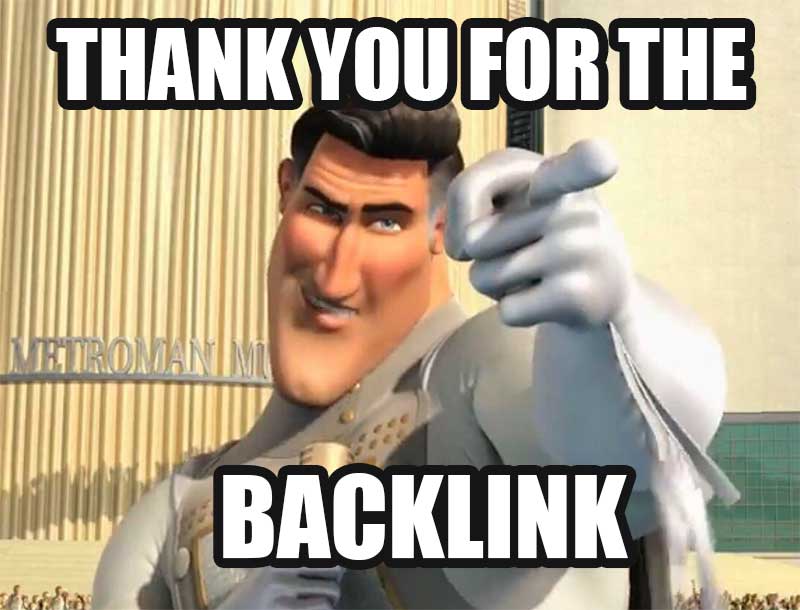
Additionally, many vendors are also local businesses that care about search engine rankings. They will understand that you need backlinks for local search goals, and It’s not difficult to sell them on the idea that trading backlinks will have benefits.
Summing it Up: What to do Now
With these local link-building strategies, you’re already well on your way to finding top-tier, local and industry-specific links for your local business clients.
With a little work on the backlink profile, your client’s website will quickly find its way into search results. While you’re at it, you can build great relationships with the community by reaching out to local business members and providing value to them through mentions.
Start with the region and industry-specific business directories you can find with a simple Google search. Then, build a list of community outreach targets so that you can approach each site for guest posts, link insertions, and links from unlinked brand mentions.
Develop expert roundups to collect even more links while you build bridges with local influencers. Finally, reach out to vendor partners about being featured on their site for even more backlinks.
Do you want to save yourself the effort of link building so you can focus on your other marketing tasks? Sign up for Authority Builders. Here, you can shop for some of the best links online, including ones that are highly-local and perfect for local SEO. You pick them, we build them.
